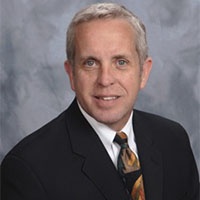Michigan White Collar Crime Lawyer List
Sponsored Law Firm
-
 x
x

Click For More Info:
-
The Law Offices of Richard L. Cooper, P.A.
848 Brickell Avenue Suite 800 Miami, FL 33131» view mapDWI/DUI, Drug Trafficking, Felony Nationally Ranked Top 40 Under 40
With Richard L. Cooper you can expect a trusted confidant who will work diligently to fully understand your case and determine a road map to help you regain control of your life.
800-756-2781
Thomas S. Piotrowski
✓ VERIFIEDYpsilanti White Collar Crime Lawyer
Thomas Piotrowski is an experienced and aggressive litigator who handles cases in and around the Detroit metro area. Since graduating cum laude from t... (more)
FREE CONSULTATION
CONTACTFREE CONSULTATION
CONTACTRockwood Bullard III
Business, Real Estate, Lawsuit & Dispute, White Collar Crime
Status: In Good Standing Licensed: 50 Years
FREE CONSULTATION
CONTACTKathleen Wilson Fink
DUI-DWI, White Collar Crime, RICO Act, Felony, Criminal
Status: In Good Standing Licensed: 36 Years
FREE CONSULTATION
CONTACTFREE CONSULTATION
CONTACTGeorge Zulakis
Traffic, White Collar Crime, DUI-DWI, Criminal
Status: In Good Standing Licensed: 46 Years
James W. Burdick
Health Care Other, Health Care, Federal, White Collar Crime, Criminal
Status: In Good Standing
Christopher Pencak
Ethics, White Collar Crime, Business Organization, Professional Malpractice
Status: In Good Standing Licensed: 42 Years

 Richard L. Cooper Miami, FL
Richard L. Cooper Miami, FL AboutMiami Attorney at Law
AboutMiami Attorney at Law ServicesCriminal Defense
ServicesCriminal Defense

